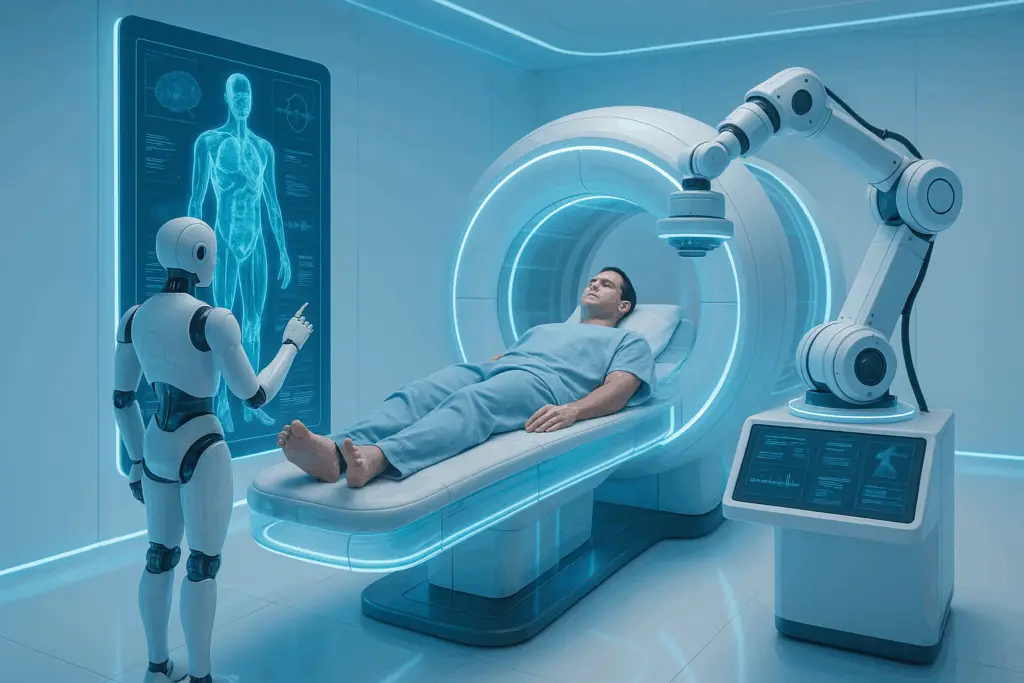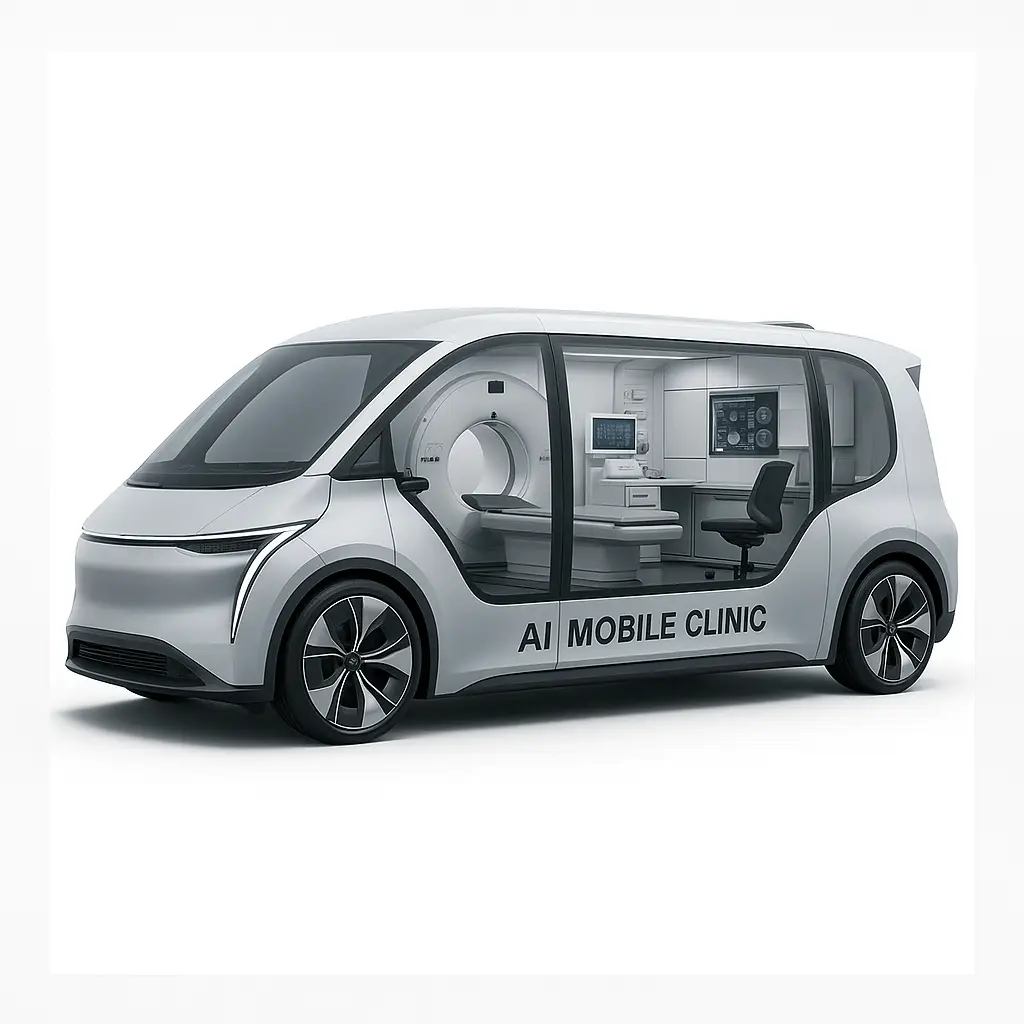Imagine walking into a clinic not because something feels wrong, but because you’re ready to know more about your body than ever before. No more juggling appointments, waiting days for lab results, or deciphering medical jargon spread across reports. In just about an hour, a new breed of smart clinics—equipped with artificial intelligence and cutting-edge diagnostics—can offer a complete picture of your health. The future of healthcare isn’t on the horizon. It’s starting now.
From Chaos to Clarity: A Unified Healthcare Experience
Today’s healthcare model can feel like a fragmented journey—blood tests at one location, imaging at another, specialists scattered across departments. Results trickle in piecemeal, forcing patients to become their own coordinators of care.
The AI-integrated clinic aims to reverse that. These facilities centralise everything—blood work, urine tests, imaging scans, even genetic screenings—into a single appointment. One blood sample can reveal over 200 biomarkers, while real-time MRIs and X-rays instantly feed data into a central system. In just one session, a patient can receive answers that typically take weeks.
This streamlined process doesn’t only save time; it also reduces stress, improves diagnostic accuracy, and empowers patients to make proactive decisions based on clear, holistic data.
AI at the Helm: Smarter Diagnostics, Deeper Insight
Artificial intelligence isn’t just analyzing numbers—it’s making sense of your entire biological story. By comparing test results with vast databases of medical research, drug interactions, and disease models, AI systems can identify subtle warning signs or abnormalities that might be missed in traditional care.
These insights go straight to a physician, who remains at the core of this experience. Human judgment, empathy, and clinical expertise pair with data-driven precision to craft a customized diagnosis and treatment plan—right there in the same room.
This partnership between doctor and machine isn’t about replacement. It’s about augmentation—unlocking faster, smarter, and more accurate care without sacrificing the human touch.

Preventive, Personalised, and Always On
This isn’t just about one-off visits. Smart clinics are extending their reach through wearables—patches, rings, or smartwatches—that monitor vital signs in real time and alert you to shifts in your health. If your oxygen levels drop or your sleep patterns shift, the clinic’s AI notices before symptoms arise.
And with your genetic profile, blood markers, and health history at its fingertips, the system can even design custom-tailored treatment plans or recommend personalised medications. This is healthcare that evolves with you—not one-size-fits-all, but one-size-fits-you.
The Quantum Leap: Unlocking New Frontiers in Health Computing
As medical data grows in complexity, quantum computing is poised to become a game-changer. Unlike traditional computers that process bits as either 0 or 1, quantum systems use qubits, which can represent multiple states simultaneously. This means future health models will be able to simulate entire biological systems in minutes—analyzing everything from protein folding to individual metabolic responses in precise, personalized ways.
Such computational power could rapidly accelerate the discovery and design of new treatments. For example, rather than relying on broad-spectrum drugs, quantum modelling could help develop bespoke therapies based on a patient’s DNA, lifestyle, and specific disease markers—unlocking the era of precision pharmaceuticals. What once took years of clinical trials may soon be condensed into a fraction of that time.
Healthcare Without Walls: Mobile Labs of The Future
Imagine sleek, next-generation diagnostic labs on wheels, powered by quantum AI cores and vast real-time health datasets. These autonomous units aren’t tethered to a hospital or clinic—they’re fully operational laboratories, capable of processing high-volume diagnostics, cross-referencing global health databases, and offering on-the-spot medical insights wherever they go.
Each mobile lab harnesses quantum-enhanced processors to analyze complex biological samples within seconds. Blood, saliva, urine, and imaging data are fed into ultra-efficient AI systems that interpret health profiles in real time—adjusting for local epidemiology, personal genetic variation, and even environmental exposure. Whether parked in a city plaza, near a rural school, or outside a disaster relief zone, these labs extend the reach of cutting-edge medicine, turning every corner of the world into a potential center for advanced, personalized care.
A Future Within Reach
While these innovations may start in high-tech hubs like Silicon Valley, the goal is accessibility. Companies like Prenuvo are already proving it’s possible—offering full-body AI-assisted MRIs for early cancer detection. The next step is scaling this model so proactive, high-tech care is available in every major city—and, one day, beyond.
Healthcare isn’t just changing. It’s transforming into something faster, smarter, and far more human-focused than we’ve ever experienced. And it all begins with that first, one-hour visit.
This blog post was written with the assistance of ChatGPT, based on ideas and insights from Edgar Khachatryan. Pictures generated by Sora and ChatGPT
